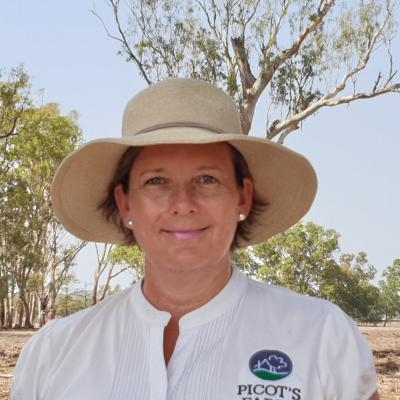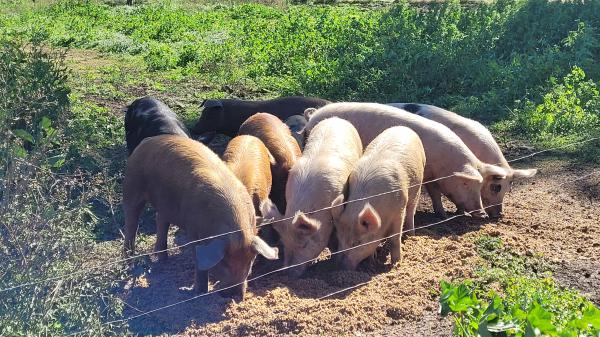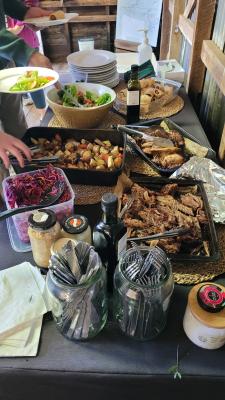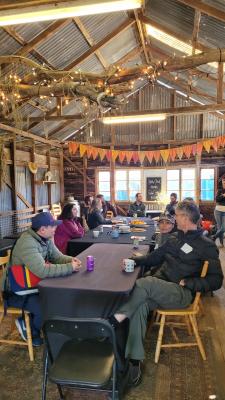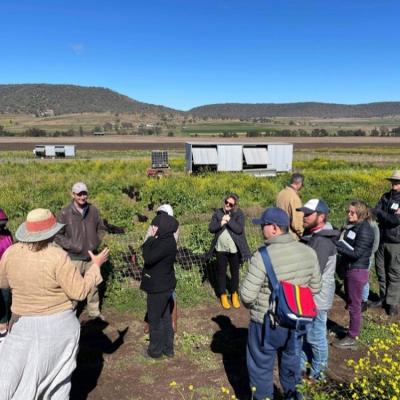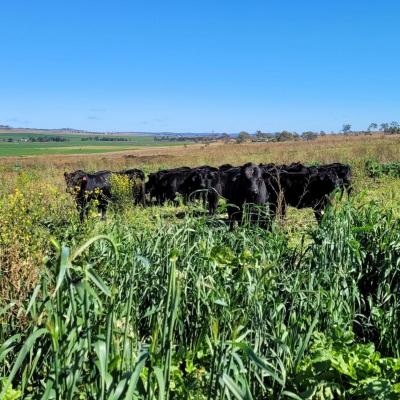By Helen Lewis, Ag Columnist
As we enjoy one of the wettest winters for quite some time, we can start to think about what we do with this soil moisture.
Even if spring and summer are below average, we are still going to grow grass.
With our holistic planned grazing we are wanting to give the winter standing feed a graze so the growing points are exposed so as the daily temperatures increase and soil temperature increases, the sun can trigger growth.
When soil temperature gets back up to 12 degrees the summer grasses start to grow again.
By opening up the grasses, we will maximise sunlight capture and provide the roots with energy through photosynthesis to grow more feed in summer.
In summer, it is very important to monitor the rate of the growth of your grass. This practice indicates your recovery period for your grasses, so you minimise overgrazing and maximise grass growth in summer.
If you are interested, you can do this by making a netting (small enough netting/mesh so a mouth can’t get in) cage tall enough so livestock can’t reach the plant inside the cage, and square or round to fit over a decent sample of plants the animals would eat (one metre by one metre).
Put the cage over plants that animals would eat and near other plants they will eat, put your animals in that paddock, for your planned number of days.
When you move the animals make a note of the date, monitor the plants outside the cage, and see how many days it takes for the plants outside the cage to be the same volume as the plants inside the cage.
The number of days is your recovery period. It will determine how fast or slowly you should be moving your animals. For example: the faster the growth 20 to 30 days recovery move quickly, 50-60 days recovery move slower.
Holistic Planned Grazing is all about increasing soil carbon.
An increase of one per cent organic matter (about 0.5 per cent increase in carbon) can result in the soil being able to hold over 150,000 extra litres of water per hectare. That is a huge amount!
If you want to make the most of your soil moisture by tweaking your Grazing Management, join us on 7 and 8 August at Picots Farm Woolshed for a Holistic Planned Grazing workshop.
Book by texting Helen Lewis on 0418785285 or direct at www.trybooking.com/BSFLO.
Find out how much water you are holding in your soil by getting a soil carbon soil test with Sarah Fea at BEAR Biologics 0439827927.
Celebrating local flavours
The Jumpers and Jazz Celebration of Local Flavours was a great success, giving local farmers who direct market their produce a chance to promote what they do and creating a real vibe that the Southern Downs is a food and wine/beer region worth visiting and supporting.
The Southern Downs Food Map was very popular with people seeking it out. Developed in 2019 with a Landcare community project grant, and now under the auspice of Southern Downs Regional Council, as one of the farmers on the Food Map I want to promote it far and wide at www.southerndownsfoodmap.com.au.
We need to keep the momentum and update the food map with any new local farmers selling direct to customers, any food business using over 50 per cent in Southern Downs-grown fruit and food, and any café that offers meals that are direct from farmers in the region.
Those who want to be included should email: edu@sdrc.qld.gov.au.
If you are a local looking for local food, many of the farmers have an ordering system and subscription models you can join.
We want you to be able access our amazing local food direct from the farmer, with most of the food chemical free. Watch this space in the coming weeks as we develop a community platform for local food orders.
Keep an eye on Facebook Picots Farm for an update next week.
Also on the weekend, The Breen Family at Echo Valley Farm Goomburra hosted an Agroecology workshop.
Agroecology is all about improving the landscape, the lives of farmers and the long-term prosperity by developing community with farmers.
This gathering of farmers who are wanting to collaborate and help each other improve their land, and grow their businesses, by sharing ideas, tips and tricks. Such positive uplifting discussions.
One topic was all about scale. The old mantra is you have to get big or get out.
Or what about a network of lots of smaller farms working together and collaborating with freight, equipment, buying group, sharing business information to make it easier for newcomers, helping every farm business become the best they can be without the overheads.
This collaboration model is developing in our region already and it will be exciting to see where it takes our regenerative farming community. We can collaborate, rather than compete.
What’s coming up in local landcare:
1. Cultural burning workshops
• 5 August at 49 Mailmans Road, North Branch
• 6 August at Lot 2 Brooklands Road, Dalveen
• 7 August at 446 McMasters Road, Upper Freestone
• 8 August at 110 Back Creek Road, Karara
2. Regenerative Planned Grazing
• 7 and 8 August 2021 Picots Farm. Text Helen Lewis on 0418785285. Or book direct: www.trybooking.com/BSFLO.
3. Granite Belt Regenerative Agriculture Symposium
• Saturday 4 September at Stanthorpe Civic Centre.
Tickets available at www.gbsan.org.au/events/symposium2021.
Enquiries to symposium2021@gbsan.org.au.

